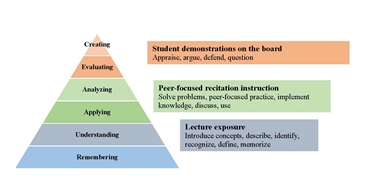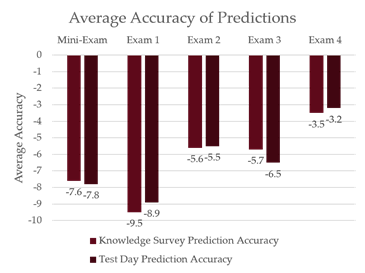Current Research and Programs:
Metacognition in the Classroom
Peer-Focused Recitation Instruction

In collaboration with the Mississippi State University Provost office, Registrar and College of Arts & Sciences, Dr. Mlsna instituted a peer-focused, active learning recitation instruction hour for the General Chemistry I classrooms at Mississippi State University. Focused upon active review of class concepts with support from peers, the recitation encourages students to mentor each other as students reinforce their learning. Now in its third year, the recitation hour has been demonstrated to increase student performance on the American Chemical Society standardized final exams by 17.75 national percentile points and has also significantly reduced the D/F/W rates for the course. Students that experience recitation demonstrate stronger performance in General Chemistry 2 due to improved foundational knowledge.
Solved Problem Analysis
Eye Tracking with Incorrect Worked Examples
In collaboration with Dr. Andrew Jarosz in the Mississippi State University Department of Psychology, we have used eye tracking technology to evaluate student attention and learning patterns using incorrect worked examples for general chemistry. Our studies have shown that participants spend far more time evaluating and focusing upon incorrect worked examples (as shown in the figure to the left) with subsequent improved retention of concepts. This work is in preparation for publication and will be used to inform future research on online problem solving for students.
Knowledge Surveys and Exam Predictions

Students’ metacognitive monitoring of their own abilities, or ability to gauge their own understanding, is an important part of the learning process. Therefore, to better understand how students learn chemistry, we must better understand how students in chemistry are monitoring their own understanding. Metacognitive monitoring is often measured via the accuracy of a self-judgement of performance, usually a prediction or a postdiction. Students within General Chemistry classrooms are monitoring their level of understanding through knowledge surveys (taken 48 hours before exam) and exam day predictions. Analysis of students level of understanding is a focus of this research project, with particular focus on topics or areas of student difficulty. A comprehensive analysis of difficulty in examination questions has become part of this research study, with results currently in preparation.